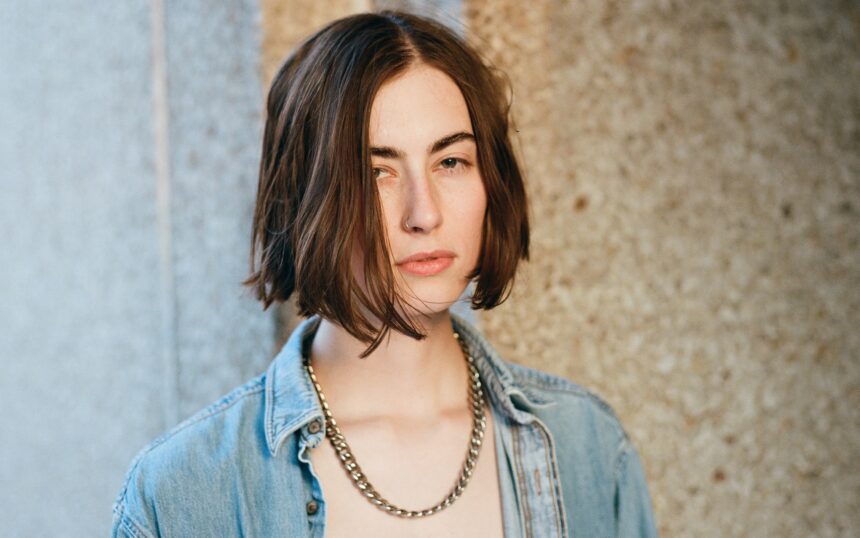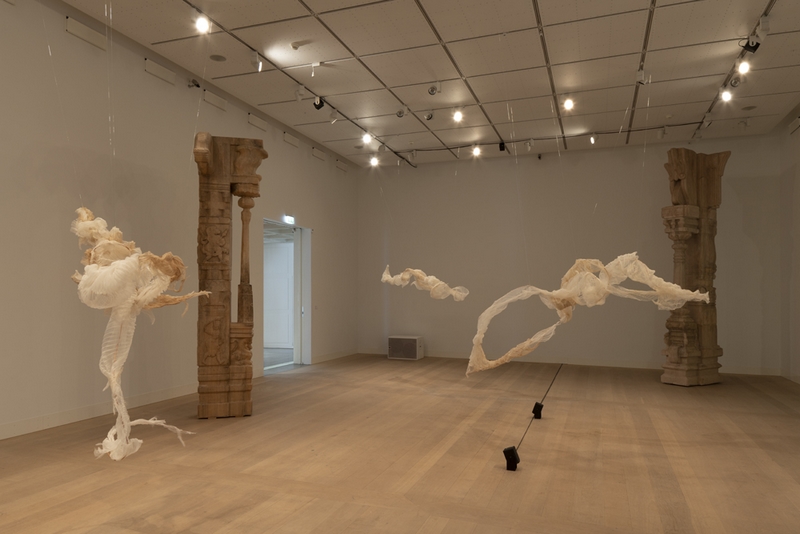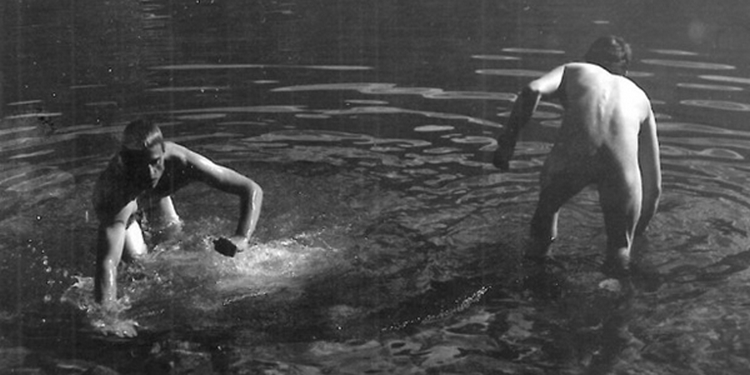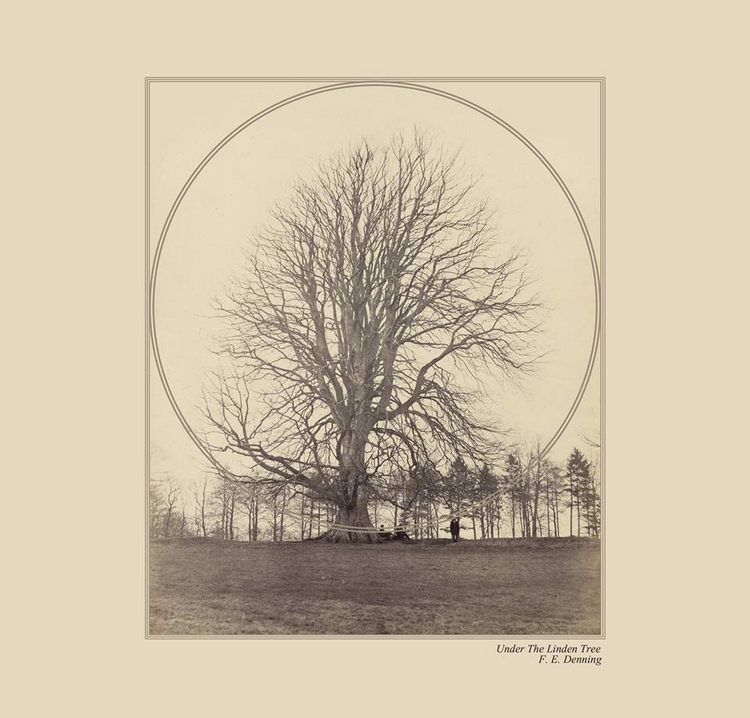claire rousay – “You can’t really help what affects you” (interview)

Interview by Ivna Franić
When I caught up with claire rousay via Zoom the other week before she embarked on her tour, it was early morning in LA and late afternoon here in Copenhagen. While I was tired from a long day of working, she was just getting started with her day, and that included working on her music. Hardly surprising, I suppose, as it can sometimes be difficult to keep up with rousay’s rich and varied output. The prolific musician and composer has put out a number of interesting solo and collaborative releases over the past few years on labels such as Shelter Press, Ecstatic, Mondoj, and American Dreams (as well as her own imprint, Mended Dreams). Her album Everything Perfect Is Already Here was one of the best ambient releases of last year, and then there was her collaboration with More Eaze, Never Stop Texting Me, which daringly took on hyperpop. We ended up having a pretty relaxed conversation on a range of topics, from her approach to live shows and the role of text and speech recordings in her music, to “uncool” music and emo ambient.
P/A: I would like to start by looking back at your show in Copenhagen last year. I was there and loved the performance – I thought it was really interesting that you gave the audience a choice between the “standard” ambient set and a new text-based set. (The audience chose the latter, ed.) How much do you use the live format to experiment with new approaches? And how much of it is prepared versus improvised?
claire rousay: “The way I play live is I have these cells of five to ten minutes of music and I have twenty of them that I kind of improvise with depending on the setting. If I wanted to, I could play an ambient set for an hour or forty minutes or whatever, but then there are all these other short pieces of music that I can bring in or take out. So I have twenty options or something like that, and I can pick and choose from them depending on the context. Sometimes the set is influenced by what the people in the room want to hear or the reaction I’m getting to the previous choice I made during the performance. And then there are times when I just decide what I want to do. Sometimes I like to be a little confrontational when I play, and sometimes I would rather not have to deal with people not liking it. It depends on the situation, but especially for this show, I had friends there, so I felt like I could really do whatever I wanted, and if people didn’t like it, at least I had my friends to talk to afterward. It was fun, I’m doing different material this time, so I’m excited to try it here.”
Sometimes I like to be a little confrontational when I play, and sometimes I would rather not have to deal with people not liking it.
P/A: Is your upcoming tour tied to a new release?
CR: “No, honestly, I thought I was going to have a record out this year and it just never happened. I have like three full albums ready – each has a different theme and instruments I’m writing for – and I thought one of the three records would come out this year. But just due to the way music works now, I guess nothing is going to come out. So I kind of decide what I want to play based on things that are outside of album cycles and writing and recording versus live, like the whole classic way that people would choose live material. I’m kind of working outside of that, and I’m more interested in making music that sounds like the music I’m interested in listening to that’s not my own. So right now I’m really into listening to the radio, like FM radio here in LA. There are a lot of radio stations, so you can hit the scan button and almost every station is occupied, there’s not really a lot of empty space, so I’m kind of taking that idea and using it to inform how I’m going to play live. It’s almost going to sound like skipping through a bunch of songs. We’ll see if it changes, but that’s kind of what I’m planning on doing right now.”
P/A: Speaking of radio, this element of the everyday seems to be something the music media likes to focus on when writing about your work. Do you aim to capture the mundane, or do these sounds find their way into your music because they’re, well, just part of everyday life?
CR: “It’s a little bit of both, right? Like, if you make work of any kind, it is technically part of your everyday life. If you choose to make work all the time. I’m constantly thinking about making work and making work, so I guess it just is my life. The kind of mundane sounds, field recordings… I mean, I’m still interested in that, but a lot of that press came out at the same time, so a lot of it is album-cycle press around one record. Or like a couple of records that kind of explore the same instrumentation, the arrangements are quite similar. So now I don’t really know, I guess I use some of the same techniques or ideas, but it’s becoming less important to me. The way I feel when I listen to these mundane field recordings and sounds like that, I think that feeling is still there, but maybe it’s caused or triggered by other things at this point. I think the sort of feeling that’s behind it, the sort of feeling that I get when I listen to that stuff, is maybe what I want to capture somehow.”
The way I feel when I listen to these mundane field recordings and sounds like that, I think that feeling is still there, but maybe it’s caused or triggered by other things at this point.
P/A: Do you feel that maybe one of the reasons why this seems to be such an important point for a lot of writers is that a lot of ambient and experimental music can be a bit detached or hermetic, so it feels refreshing in a way to have an open, personal approach to sound?
CR: “Yeah, definitely, and I think that’s still what I’m going for. I can’t really avoid that approach because that’s just the way I deal with music – like, super emotionally charged, but also really personal. And that’s the way I like to do any kind of work, that’s not everybody’s thing, but it’s mine, so… I think that’ll stay the same. So if people think that’s refreshing, they’ll continue to be refreshed.” (laughs)
P/A: I also found that interesting, because I feel like when these kinds of present-day, mundane field recordings and ASMR came into contemporary experimental music, it was mostly through the artists who were more focused on technology, AI, and things like that. And now it seems like it’s becoming more of a thing in ambient music as well.
CR: “Yeah, there are a lot of people doing that, especially the text-to-speech thing. I don’t know, I think a lot of people are using it in this highly emotional way, or trying to elicit some kind of emotional response, in that kind of way, as opposed to early versions of a more detached, AI situation. But yeah, I don’t know what to do with it now because it feels like a trope. And I’ve already kind of fed the beast and made it stronger. So I think maybe the trope should stay a trope. Maybe my music is already uncool, but I think I’m going to stop using some of those materials or ways of making music so that my music doesn’t get any less cool.” (laughs)
You can’t really help what affects you and how it affects you, right? I guess that’s where I come from. I like the way the songs make me feel. It’s great to have that shared musical experience.
P/A: Does that more personal, emotional component come from having a background in music that’s not necessarily just ambient or experimental or whatever, but also alternative and indie?
CR: “Yeah, totally. If you want to talk about uncool music, we can talk about indie rock. Just kidding!”
P/A: No, I have the same background. (laughs)
CR: “I mean… You can’t really help what you’re introduced to as a child, or as a young person, or what kind of influences you have. So the whole idea that music, especially music with voice and lyrics is uncool, or versions of that music is less respectable or something, I think that’s so stupid. You can’t really help what affects you and how it affects you, right? I guess that’s where I come from. I like the way the songs make me feel. It’s great to have that shared musical experience. Like, two people can listen to a sad song and agree that it’s a sad song, even if it’s not their favorite song. It’s cool to do that with music that’s traditionally pretty far removed from that.”
P/A: It’s also interesting to see how many ways there are to channel an influence, it can be through a completely different kind of music. Just because you operate in one field doesn’t mean you should only be into that stuff. The collaborative release with More Eaze that you put out last year, Never Stop Texting Me, was the intention behind it to have fun with that idea?
CR: “I feel like people get pigeonholed super fast. Like, an artist can make their first couple of records and then they get put in this box and I’m like, this is so early… in their career or whatever you want to call it. Like, somebody’s gonna make music for fifty years and you’re just using the first three years to categorize what they do. That’s pretty insane! So I guess the idea was to change it up and make music that was different from what we traditionally put out, but also just make music that sounds like the music we listen to. And the music that we listen to when we’re hanging out is like pop music, so taking our own approaches to that and also, like, how hyperpop has kind of faded and become less cool, I think interacting with that is also really interesting. Fake hyperpop or something like that. Like, taking elements from a lot of different kinds of music and putting them together, which – in my opinion – is truly experimental, but other people don’t necessarily, which is fine. But More Eaze is my best friend and I think it’s a really fun record!”
Like, if you’re writing something for somebody else to read, it’s easier to get your point across that way than, like, playing a modular synth or something.
P/A: Going back to the voice recordings, since you do a lot of that, how important is the text to your overall creative process? Do you just try to capture spontaneous speech or do you pre-write some parts?
CR: “It’s all over the place. A lot of the time I like to source things from a variety of places. Some of it’s pre-written and read by a computer, some of it’s pre-written and read by my friends – I hire someone to read it – sometimes I read it, sometimes it’s improvised, like monologue-type stuff that I do with my own voice, Sometimes it’s a sample from, like, a YouTube video or a recording – like, I’ll make a twenty-minute recording of myself in a bar or something, and then I’ll listen to it the next day and find a part of it that I want to work with… It’s kind of from everywhere, all the way from a stranger saying something that’s completely [spontaneous] – no rehearsal or anything, sometimes even too real, too raw, but everything from that to me writing text, sending it to somebody and asking them to read it.
Yeah, it’s really important to what I do. I also really like to read. And I think writing something down is a pretty direct way to communicate. Like, if you’re writing something for somebody else to read, it’s easier to get your point across that way than, like, playing a modular synth or something. (laughs) If you’re trying to say something with your work and you want people to understand it, that seems like the quickest and most effective way. So that’s kind of how I use it. Of course, there are also elements to the stuff I make that are a little more open to interpretation.”
P/A: You say you really like to read. Is there anything you read recently that you found particularly interesting?
“You know what? There’s this really good book of poetry by Beth Anderson called Overboard. I bought it recently and I’m almost done with it. It’s poetry, kind of like short fiction. But yeah, it’s really good.”
P/A: You’re going to do an artist talk in Copenhagen. Is this something you do occasionally? Is it going to be more like a live interview or a presentation?
CR: “It will have the feel of a live interview/conversation, but since it’s an artist talk, I think more of the conversation will be on my shoulders, so it’ll be kind of a monologue with an occasional second point of view coming out of it, at least that’s how I understand it. I do artist talks sometimes, but I do live conversations and panels and things like that more often. I really like that. Going back to my point earlier about using words and direct communication, I think it’s a really good way, especially for people who make music, who make any kind of work that’s harder to pin down or interpret, it’s a super direct way [to discuss their work]. And it’s also kind of a performance. So it’s a little bit of fun, you can kind of make it whatever you want to make it, it doesn’t have to be super boring or straightforward.”
P/A: Oh, and one last thing. I can’t help but ask – how did this whole “emo-ambient” thing come about? I suppose it’s an inside joke?
CR: “Yeah, it’s an inside joke between me and More Eaze and our friend Randall who has a project called The Amulets, at least that’s who I talked to about it. I’m in a group of friends that don’t like to call their music that, but it’s an inside joke because we all listened to 90s and early 2000s emo/rock, but then we make more ambient music. We all grew up listening to that music, that was something we liked, and then we ended up doing something completely different, but we’re still trying to find ways to inform the work we do now with that or like with the music [we listened to] previously in life. But mostly it’s an inside joke. And I started saying it in interviews and people started using it in their bios and it’s kind of become a thing. But I don’t think it has a particular sound or anything. I think it just has an attitude, and that attitude is kind of stupid.” (laughs)
P/A: It’s fun because the music media likes to come up with new genre names like that, but if you come up with something like that as a joke, you’re kind of beating us to it.
CR: “Yeah, exactly. I like “emo ambient” and then I’m really into people who are like… I’m trying to coin “musique concrète rockstar” or something like that. I think that will be the next fun thing to try.”
claire rousay will play live at Copenhagen Distillery on Wednesday, April 12th, and will hold an artist talk at RMC on Thursday, April 13th at 4 pm.



